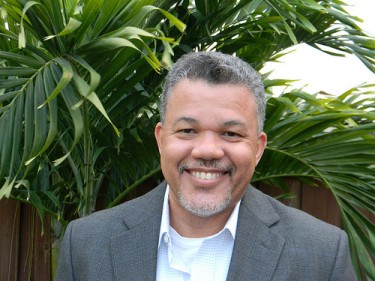Come August 6th 2012, Jamaica will celebrate 50 years of independence from Great Britain. The year marks many of these anniversaries across the Commonwealth Caribbean (Trinidad and Tobago marks its 50th later in the month – August 31st – never mind the official website for the celebrations was recently taken offline thanks to an uproar over incorrect spelling, grammatical errors and inaccurate content). Jamaica's efforts to mark the occasion, however, seem to be going more smoothly. In this post, I interview two bloggers – one from the diaspora (litblogger Geoffrey Philp) and the other (Nadine Tomlinson) living on island – about how Jamaicans are preparing for the celebrations, how social media has had an impact and what the country has accomplished in the last half a century.
They both had a lot to share about the ways in which the country will be marking this landmark event. Celebrations, including awards ceremonies and cultural exhibitions, are gearing up in Jamaica's capital, as well as in cities throughout the United States where the presence of the diaspora is high. The Miami Tower, for instance, will be lit with the colours of the Jamaican flag from August 3-6. In Kingston, the Jamaica National Heritage Trust will hold its annual Emancipation Jubilee, which includes independence parades and galas as well as a tribute to the country's national hero Marcus Garvey.
Still, with talk of the anniversary being sullied by political wrangling and marketing spin, not to mention the reality of Jamaica’s economic and social situation, I asked whether celebrating this milestone seemed a bit out of whack…

Jamaican diaspora litblogger, Geoffrey Philp; photo used with his permission.
Geoffrey Philp (GP): Jamaicans need to celebrate this milestone because heroes such as Samuel Sharpe, George William Gordon, and Paul Bogle died in the fight for our freedom from slavery and colonialism. So when we dance and celebrate, we should remember that just over 150 years ago, we were slaves and fifty years ago we were a colony of the British Empire. No matter where we live, political wrangling and marketing spin are part of our life in the 21st century [and] as far as the economic and social realities are concerned, I don't think that should stop the celebrations, which should also be a time of reflection about these questions: Who are we? Where have we come from? Where are we going?
Global Voices (GV): Does the average Jamaican – including the youth – recognise the significance of the milestone or is it just an opportunity for pomp and circumstance with no deeper meaning, no future game plan?
Nadine Tomlinson (NT): I think it's important for us to acknowledge and celebrate all important milestones in Jamaica's historical journey, and to do so within our means. Milestones remind us of how far we've come as a nation, and keep its vision and goals fixed before our eyes.
My observations on social media and in occasional encounters have revealed that Jamaicans and those in the Diaspora are excited about our 50th anniversary. Some schools are getting involved by hosting ‘villages’, where they have tours and showcase cultural artifacts. Churches are doing the same. Personally, it gives me hope when I see the Jamaican youth getting excited about our country, its history, and culture.
Geoffrey Philp (GP): For those of us in the Diaspora for whom the meaning and the love of home is magnified by absence, fifty years of independence is an important milestone. I know within several Jamaican diaspora organizations there are intense debates about the future of the country. In recognition of the significance, a friend of mine, blogger Jean Lowrie-Chin has suggested an apology that our leaders should offer the terrorised people in certain communities of Jamaica who are still enslaved by gang/garrison warfare:
‘We apologise for our complicity with thugs who have inflicted profound grief, suffering and loss on these our fellow Jamaicans. For the pain, suffering and hurt of these victims, their descendants and for their families left behind, we say sorry. For our divisive strategies, pitting parent against child, brother against sister, for the breaking up of families and communities, we say sorry.’
Global Voices (GV): In the discussion about the country’s 50 years of independence, what role has new/social media played in the messages that are getting out? Are citizens (or even the government and opposition) using social media platforms to voice their congratulations or concerns? Are young people talking about it on Facebook or Twitter? Has the blogosphere added a new dimension to the debate?

Jamaican blogger Nadine Tomlinson; photo used with her permission.
Nadine Tomlinson (NT): Oh yes! Social media is rife with promotional messages and conversations about Jamaica 50 and its celebrations. An example is a classmate of mine, who normally uses Facebook to capture ‘Jamaicanness’ in interesting ways, has been doing a countdown where she features some aspect of Jamaican life and culture, leading up to August 6. On my own blog, from time to time, I feature cultural happenings in Jamaica, which have included this year's anniversary celebrations.
Geoffrey Philp (GP): The new media have exacerbated some of the controversies regarding the song for the 50th anniversary. The government and opposition have used social media to voice their approval (or disapproval) of the songs via YouTube and Twitter.
The blogosphere has added to the debate and Facebook sites such as Absolutely Jamaican and Jamaica Anniversary are certainly doing their best to spread the word about the celebrations.
When I asked the bloggers what they thought were the country’s most venerable accomplishments over the last 50 years, answers ranged from improvement of educational access to the popularity of the island as a preferred tourism destination. Nadine summed it up by saying, “We've developed a very strong Brand Jamaica.” Geoffrey on the other hand, noted that “Our accomplishments have to be measured in the talented people our culture has produced”:
Geoffrey Philp (GP): We have moved closer to an understanding of freedom, respect for human rights, and a greater understanding of identity. This has not been easy because we inherited a patriarchal, colonial system that was inherently flawed with a bias toward denigrating New World Africans and continuing the class warfare of British imperialism. Yet despite these obstacles, we have produced some of the most talented stateswomen/men, athletes, public intellectuals, doctors, and musicians in the world. It's often been said that a country of Jamaica's size should not exert the kind of influence that it does in world affairs, but it does.
Global Voices (GV): What about shortcomings over the last half a century?
Geoffrey Philp (GP): The single biggest shortcoming is the race/class divide whose origins are in colonialism and the application of simplistic paradigms to our condition. We are not European nor are we Asian. Most of us are of West African origin, but we are not West Africans.
From that West African base, we are in the midst of this breathtaking struggle to create a culture that has never existed before on the face of the earth and it is only until we embrace that complexity of seeing ourselves through our own eyes–validating our experience as worthy–that we will experience our own greatness.
Nadine Tomlinson (NT): We need a spirit of increased unity and an elimination of political rivalry. We need increased protection of our children. We need a justice system that works more efficiently and expeditiously.
Global Voices (GV): What issues is Jamaica grappling with now and what do you think the challenges will be in the future? Where do you see your country in the next 50 years?
Nadine Tomlinson (NT): The economic situation is dismal. Growing up, I remember when our dollar was quite buoyant, even better than the USD. I want to see more revenue-earning production that doesn't lean heavily on the tourism product and less importation. In the next 50 years, I hope to see Jamaica become a self-sufficient, developed nation of burgeoning thinkers, entrepreneurs, inventors, nation builders, and world changers.
Geoffrey Philp (GP): Crime continues to be a big problem and this stems from the lack of opportunity in the island. The success stories in the diaspora bear witness to our work ethos and determination. After watching the film Life and Debt, I know that the economic issues that we face with increased global influence on our markets, we will have to come up with national solutions to the challenges to our environment, global warming, and rising sea levels.
If we re-start from a Garveyite perspective, embracing the teaching of Marcus Garvey as a Founding Father, we will hasten our progress toward our collective freedom.
50 years time? That's a long time. It's hard to be optimistic when you think about how we are killing each other, but then, I think about heroes like Sam Sharpe who said, ‘I would rather die upon yonder gallows than live in slavery,’ then I know struggle is in our national DNA and somehow we will find a way not merely to survive, but also thrive.







2 comments